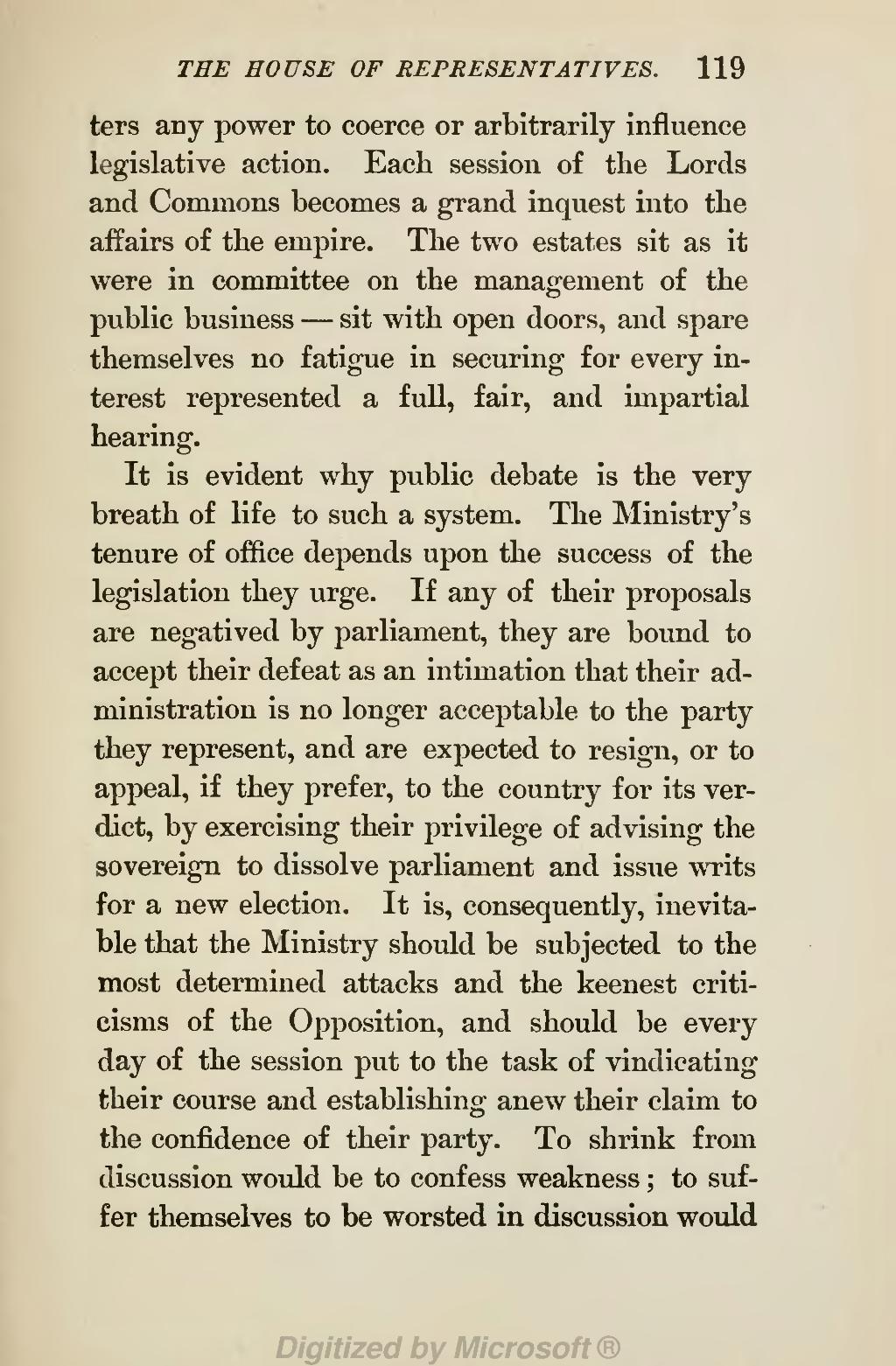ters any power to coerce or arbitrarily influence legislative action. Each session of the Lords and Commons becomes a grand inquest into the affairs of the empire. The two estates sit as it were in committee on the management of the public business—sit with open doors, and spare themselves no fatigue in securing for every interest represented a full, fair, and impartial hearing.
It is evident why public debate is the very breath of life to such a system. The Ministry's tenure of office depends upon the success of the legislation they urge. If any of their proposals are negatived by parliament, they are bound to accept their defeat as an intimation that their administration is no longer acceptable to the party they represent, and are expected to resign, or to appeal, if they prefer, to the country for its verdict, by exercising their privilege of advising the sovereign to dissolve parliament and issue writs for a new election. It is, consequently, inevitable that the Ministry should be subjected to the most determined attacks and the keenest criticisms of the Opposition, and should be every day of the session put to the task of vindicating their course and establishing anew their claim to the confidence of their party. To shrink from discussion would be to confess weakness; to suffer themselves to be worsted in discussion would
